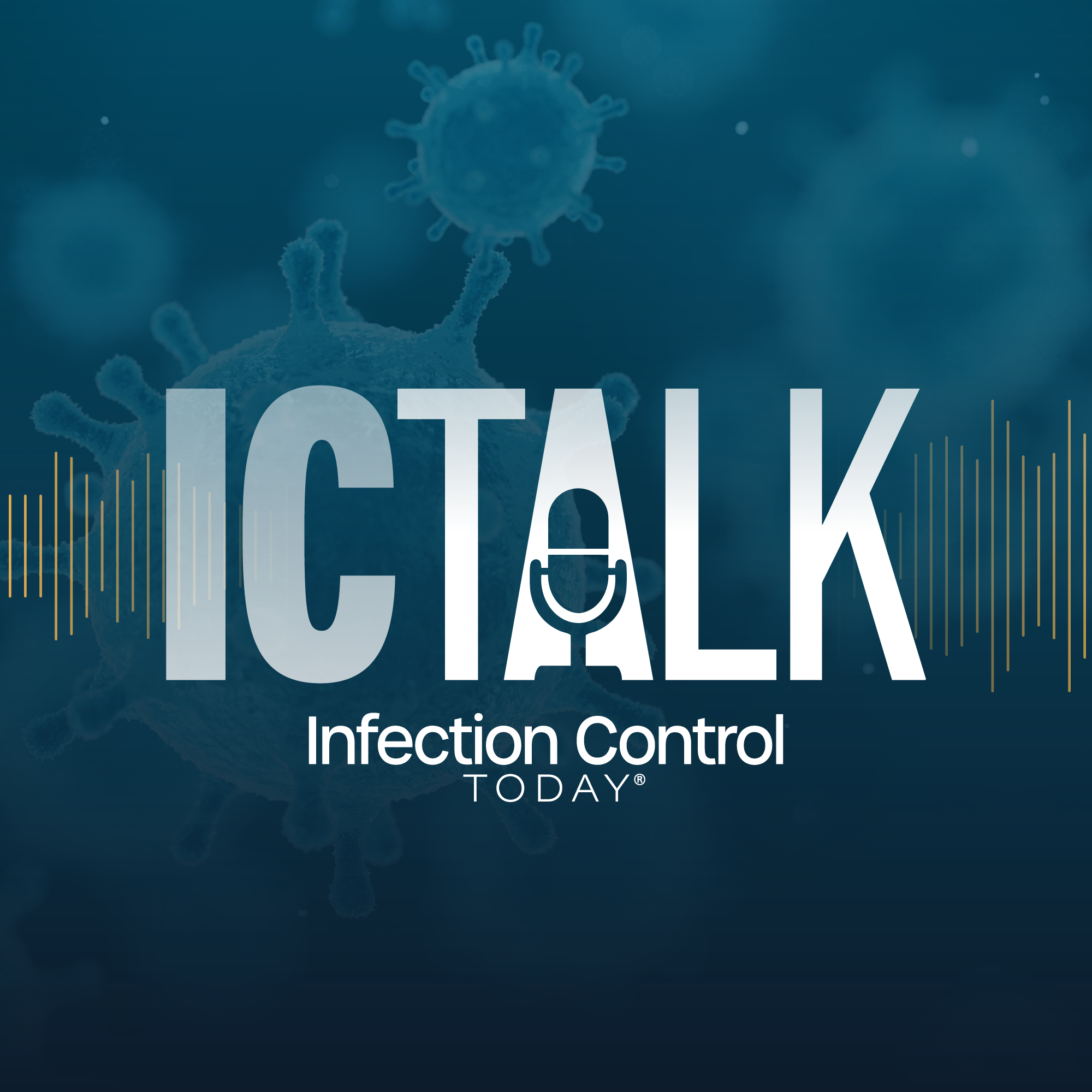ICTalk: Infection Control Today Podcast

ICTalk: Infection Control Today Podcast
Podcast Description
ICTalk: Infection Control Today Podcast is a podcast that dives into the latest trends, challenges, and solutions in infection prevention and control. This podcast delivers expert insights, real-world strategies, and actionable advice, covering topics relevant to health care professionals at every level—from C-suite executives to infection preventionists, sterile processing, environmental hygiene staff, and more. Join us for conversations with leading infection preventionists, industry experts, and thought leaders as we explore how to create safer environments, improve outcomes, and navigate the evolving landscape of infection control.
Podcast Insights
Content Themes
The podcast covers a range of topics including reusable personal protective equipment (PPE), environmental disinfection strategies, and the implications of emerging infectious diseases with episodes like the exploration of the benefits of reusable health care textiles and the critical moments for environmental disinfection to enhance patient safety.

“Fear and stigma get attached to subjects related to sexual health,” Morales began. “We need to move away from the fear and the stigma and just start having these conversations like we would talk about anything related to our general health maintenance.”
That normalization, she explained, is key. The US Preventive Services Task Force recommends HIV screening for everyone between the ages of 18 and 65, which is a higher rating than even routine blood pressure checks. Yet HIV is still often whispered about, creating unnecessary barriers to prevention. “It should be exactly the same,” Morales said. “We need to take the fear away from it so that we can start having conversations that are solely based on prevention and just trying to set us up for a successful, healthy life.”
For those unfamiliar, Morales offered a quick refresher:
“HIV is a sexually transmitted infection… The only way that you can get this infection is through sharing bodily fluids that have high amounts of the virus.” AIDS, she noted, is the advanced form that develops only without treatment. “Right now, we have so many great therapies that even if you were to get diagnosed with HIV, you can have a healthy, long life…by just taking one pill a day.”
She went on to explain PrEP, preexposure prophylaxis, a medication that reduces the risk of infection by up to 99%. “We have 2 approved oral medications and 2 injectable medications… there’s literally an option for everybody,” she said. “It’s about starting this conversation with your provider and finding the right fit for your lifestyle.”
Still, starting that conversation, especially with adolescents, can be daunting. “The first step… is reckoning with what you think these issues are, and finding what your biases might be,” she advised parents, educators, and health care professionals. “If you have doubts or uncomfortable feelings, that’s going to translate. Once you’re able to talk about this like you’re talking about going out to dinner or seeing friends—that’s the level of comfort you need.”
She also emphasized that HIV does not discriminate. “It has nothing to do with who you’re having sex with,” she said. “If you are somebody who’s having unprotected sex, that is your risk factor. We have to move away from, ‘I’m not that person.’”
For reliable information, Morales recommended the CDC’s HIV and PrEP resources, or local organizations like Hope & Help, which host community sessions and provide educational materials.
Her final message was simple but powerful: “It’s okay to be uncomfortable, it’s okay to be fearful, but it’s important not to shy away from asking these important questions. Knowing your status is the first step.”
In the end, talking about HIV and PrEP is not just about science; it is about breaking the silence. As Morales reminded Infection Control Today’s audience, information saves lives, but conversation opens the door.

Disclaimer
This podcast’s information is provided for general reference and was obtained from publicly accessible sources. The Podcast Collaborative neither produces nor verifies the content, accuracy, or suitability of this podcast. Views and opinions belong solely to the podcast creators and guests.
For a complete disclaimer, please see our Full Disclaimer on the archive page. The Podcast Collaborative bears no responsibility for the podcast’s themes, language, or overall content. Listener discretion is advised. Read our Terms of Use and Privacy Policy for more details.